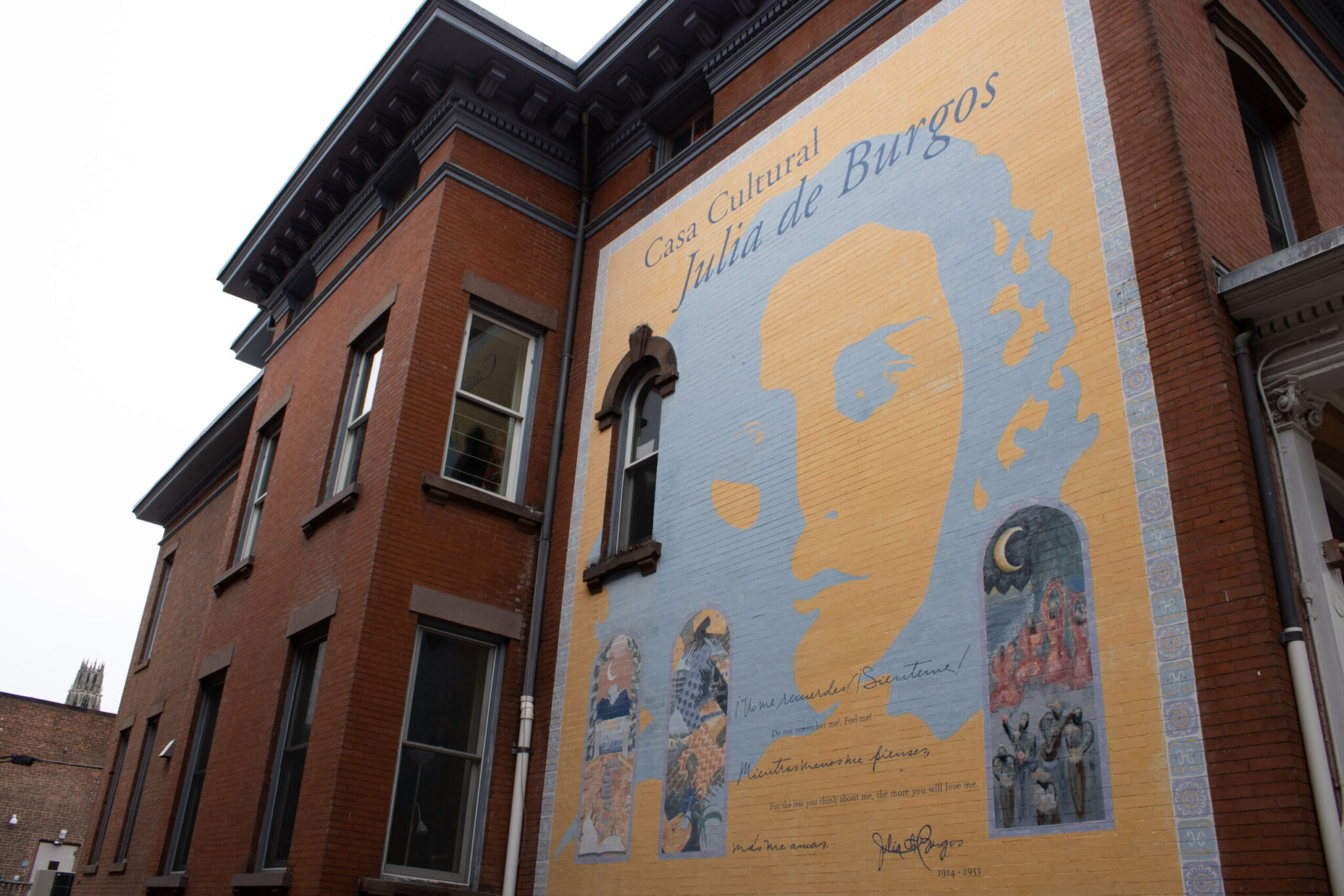Central American Futurities conference held at Yale
The conference was held this weekend in the Afro-American Cultural Center.

Alyssa Chang, Contributing Photographer
The Central American Futurities conference, likely the first of its kind in the Northeast according to event organizers, was held on campus April 5 to 6.
The conference, held in the Afro-American Cultural Center, brought speakers from across the United States and Central America to speak on scholarship, arts and activism in Central America. The event was organized by professors and graduate students across departments, Director of La Casa Cultural Eileen Michelle Galvez and CAFÉ, or Central Americans for Empowerment. Sessions hosted by expert speakers focused on social movements, creative narratives and “abolitionist studies” in the context of Central America.
“This conference is one of the biggest opportunities I’ve ever had in my life to really express what I know about my Central American identity but also express my interests because there’s so much I still want to know and explore,” Yonick Pineda, a sophomore at Brown University told the News.
The event placed an emphasis on its diverse range of speakers from Black and Indigenous ‘“isthmian epistemologies.” Speakers like Jorge Cuellar, a professor of Latin American, Latino and Caribbean Studies at Dartmouth College said that they appreciated the wide array of voices and noticed the care shown by organizers to showcase perspectives from different ethnic, racial, gender and sexuality groups.
Others like Freddy Jesse Izaguirre, a writer who helped moderate one of the sessions, said this conference was “the beginning” of wider efforts to give a voice to Black and Indigenous people, or “giving them a microphone.”
The conference included five sessions across the two days which gave those attending a chance to listen to experts, activists and artists of Central American descent. Pineda and Yajaira Hernandez from Brown University said that through the sessions, they learned about countries in Central America that they had not had a chance to explore before the conference.
“I really enjoyed seeing different perspectives in person,” said Nicole Ramsey, a professor of Mexican American & Latina/o Studies and Women Gender Studies at the University of Texas at Austin. “I feel like we often read about them through different scholars but to see people from the communities, especially Indigenous folks, talking about it in real-time and not something in the past, it was really helpful and beautiful to me.”
The conference also focused on sharing resources and scholarship which are often excluded in course curriculum, to address the lack of Central American publications across academic syllabi, per the conference’s website. Additionally, the organizing team created a community syllabus Google Form where students could add recommendations to be publicly shared after the end of the conference as “a community take-away.”
Rosa Chavez, artist and activist of Mayan K’iche Kaqchiquel origin, gave the conference’s keynote address, entitled “Wuxlab’al, Mi aliento, mi respiración, My breath, my breathing.” Chavez shared various poems and the stories behind them in both Spanish and K’iche and performed traditional Mayan K’iche instruments for the audience.
“Our region is one that is marginalized, misnamed … I think that starting to have a space to talk about all these things that we have in common and all our diversity is very valuable” Andrea Ixchíu, journalist and human rights activist, said in Spanish.
The conference also featured events focused on artistry including a special photo exhibit, The Central American Performance, organized by CAFÉ and an Isthmian Poetry and Music Open Mic on Saturday night.
Angel Alvarado Amaya ’24 told the News that he would love for this to be an annual event and that the event was made possible through Galvez and other creators’ efforts. Cuellar referred to the conference as a “reference point” and “turning point” for Central American Studies in the future.
Hernandez and Ramsey echoed Amaya’s sentiments, saying that they also hope the conference becomes an annual event.
The Afro-American Center is located at 211 Park St.







